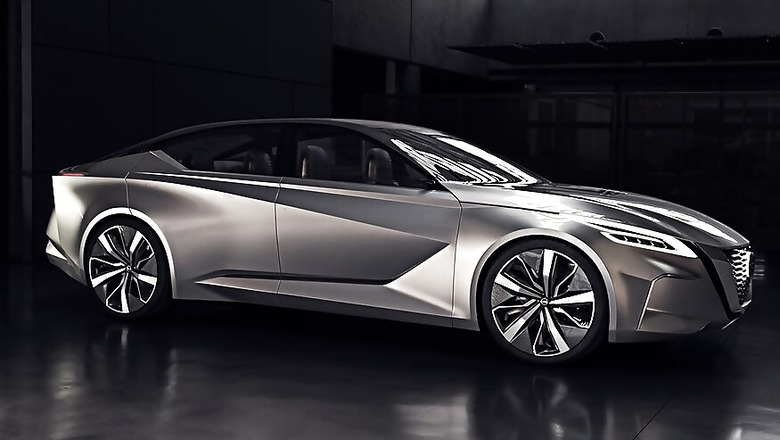
views
The Nissan Vmotion 2.0 concept sedan is as much a timely reminder for technology companies of automakers' capabilities as it is a design concept that should excite consumers about the future of Nissan's design direction.
The Nissan Vmotion 2.0 is a concept car that attempts to take the latest technological advances and present them in a vehicular package that ticks all of the classic emotional and aesthetic boxes. "Automakers are expected to deliver technology and innovation while still meeting the classic expectations of our customers," said company CEO Carlos Ghosn of the concept and of the role it will play in showing the world the direction in which Nissan is heading. "This will be a critical competitive advantage for the future and it is where automakers will be focused for 2017 and beyond."
The Vmotion 2.0 is essentially a connected device and one that is full of semi-autonomous driving technology. And that's why so much effort and detail has gone into the show car's interior in terms of screen sizes and positions, the choice of materials for trimming the seats and console, and the amount of light that enters the car. With less focus on the road ahead, the driver and occupants are going to have more time to enjoy and scrutinise their surroundings.
"We see design as the ultimate expression of how customers see themselves," said Shiro Nakamura, Nissan's Chief Creative Officer. "Vmotion 2.0 previews what the future designs from Nissan will be. And it is an insightful proposition of what the future sedan could be in the coming years."
And according to Ghosn, the coming years are going to be some of the most critical in the history of the automobile as we know it. "Technology is now as important as the vehicles themselves," he said. "We'll see more change in the next 10 years than we have in the last 50."
We're also seeing companies such as Google and now Microsoft moving into the industry and offering their technological takes on the future of personal mobility. "The story of 2017 will be the significant technological advancements and business disruption," said Ghosn.
However, for the moment at least traditional automakers still have the advantage of 130 years' combined, shared experience to draw on in terms of taking innovation and making it work properly, and presenting it in a way that excites consumers on an emotional as well as a rational level.




















Comments
0 comment